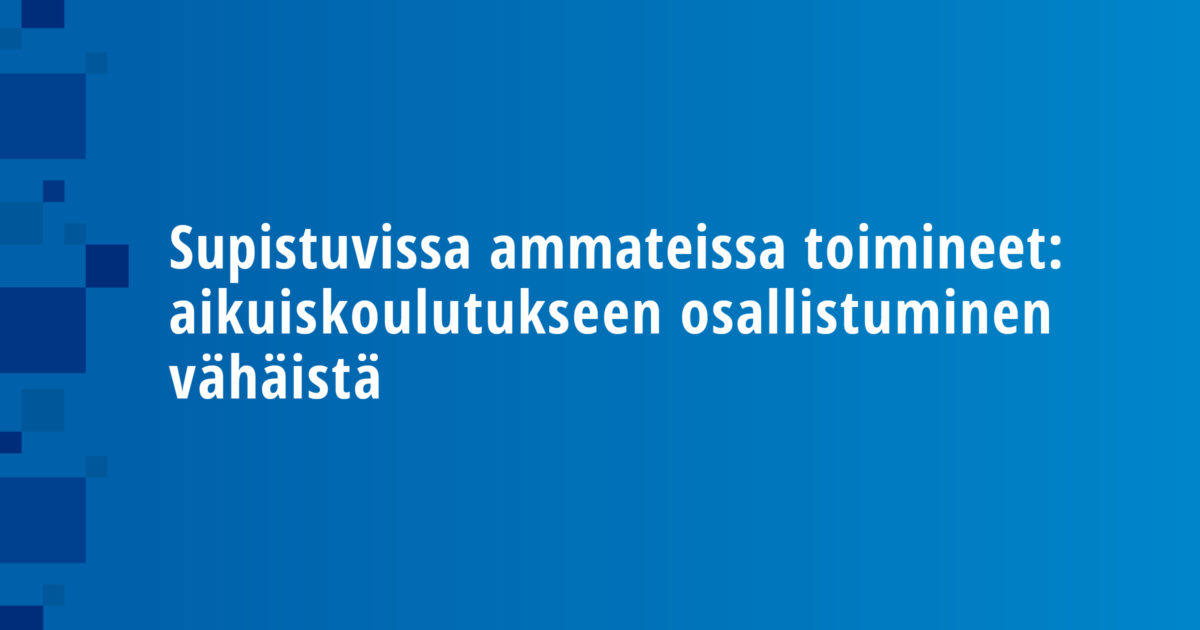
Occupational restructuring means that worker skills need to be updated, broadened or totally renewed. This report focuses on persons whose employment prospects have been particularly challenged by occupational restructuring: persons who in the mid-1990s were employed in occupations characterized by declining employment throughout the period of study, i.e. up to the year 2009. The analysis focuses on their participation in various modes of adult education and their long-term labour market outcomes.
Employees in declining occupations are found to have participated only moderately in adult education. The result is the same also when adult education is split into four main modes, and into shorter and longer time horizons. Younger cohorts and those with a higher education are strongly overrepresented among those participating in adult education programmes leading to a certificate. The labour market status of the older cohorts and the low-educated is typically much weaker, and labour market training their most common form of adult education. In view of these findings, it would be imperative to reliably evaluate the economic but, to the extent possible, also the social effects of adult education and its various modes.
Arkadiagatan 23 B
00100 HELSINGFORS
+358 (09) 609900